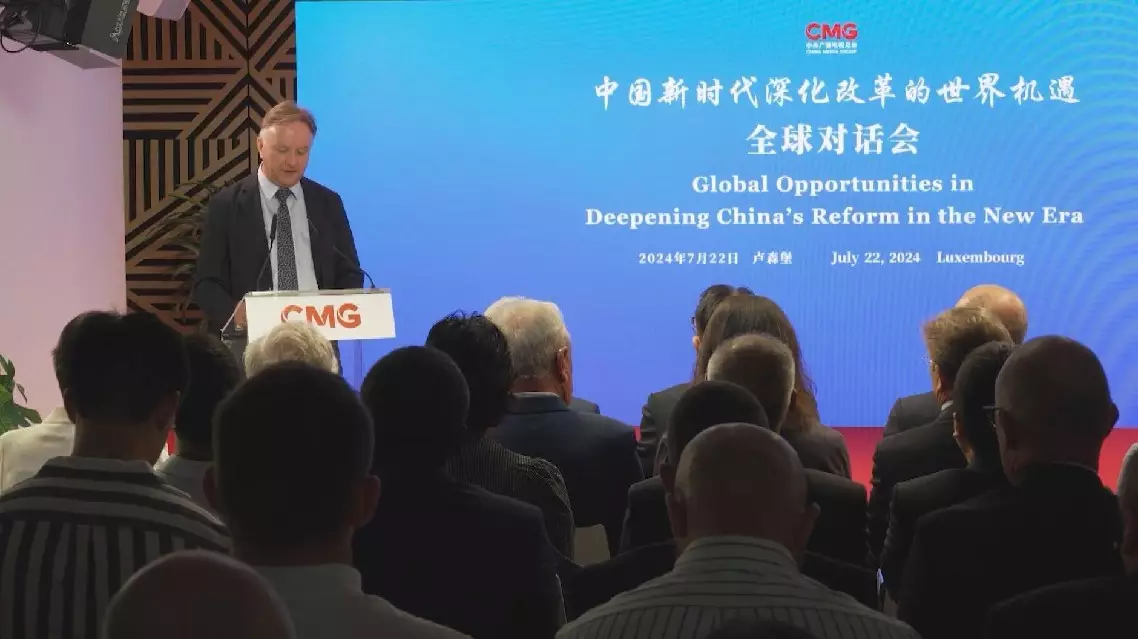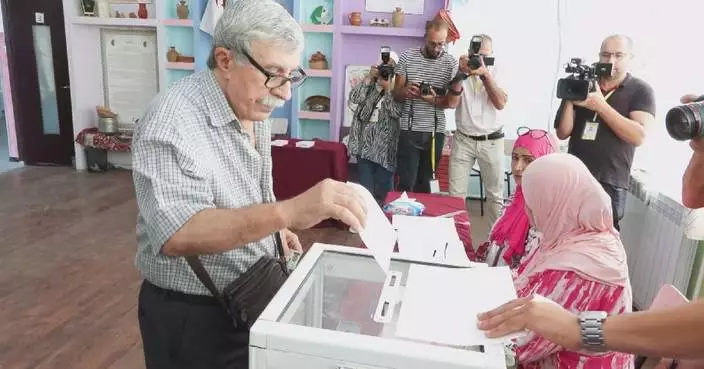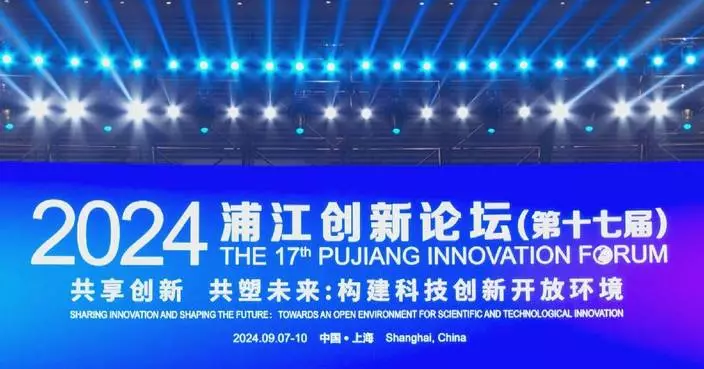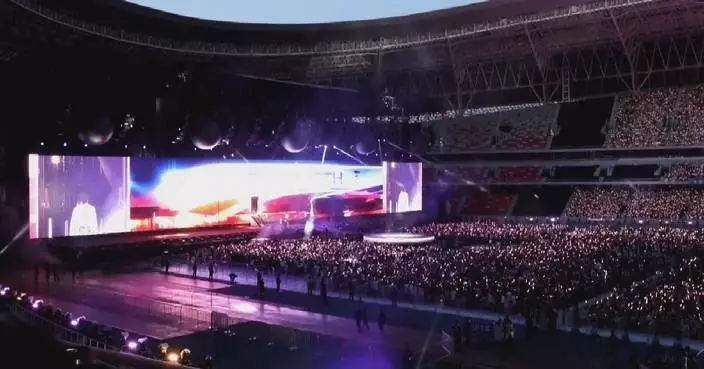China Media Group (CMG) Europe and the Chinese Embassy in Luxembourg hosted a dialogue on "Global Opportunities in Deepening China's Reform in the New Era” at the China Cultural Center in Luxembourg on Monday to discuss the outcomes and opportunities arising from China's deepening reform and modernization.
The event was held to share insights on the just-concluded Third Plenary Session of the 20th Central Committee of the Communist Party of China (CPC) in Beijing.
Nearly 100 representatives from political and business sectors, think tanks, media organizations, and university students from China and Europe participated in the dialogue, discussing China's latest policy trends and gaining a clearer understanding of China’s reform and modernization.
Shen Haixiong, President of CMG, emphasizing the significance of the plenary session as a milestone for China's development in the new era during his video speech.
In the face of today's intertwined world of chaos and change, and the opportunities and challenges presented by the new wave of technological and industrial revolutions, China has placed reform in a more prominent position, Shen stated, adding that the pace of reform will not stop, and there will be no "decoupling" or "high walls".
Shen also emphasized that CMG will fulfill its responsibility as an international mainstream media organization, continuously produce high-quality content to showcase the Chinese modernization to the world.
He hoped for honest and profound exchanges, joint responsibility and the promotion of a shared future for humanity.
"I think it's been very good, and I think it's been timely. What we found today was the big picture of the Third Plenum, which of course has gone quite successfully and hopefully will contribute to better cooperation. Well, I mean, we've seen over the last decades how important China's opening up and economic development has been, not just for the Chinese people, we heard again today about 800 million out of poverty because of it, but also for the world at large, as we need China to succeed, not just for China but for the rest of us too," said James Moran, senior researcher at Center for European Policy Studies, a leading think tank in Europe.
"What the viewing and listening public in Europe and throughout the world need to realize is that Chinese success doesn't mean that Chinese are dangerous or enemies. Quite the opposite. China is an opportunity for us, and friendship with the Chinese and trade cooperation with the Chinese is good for us. And also that trickles down to media cooperation. Audiences could learn about China. Audiences could learn about Europe. We need more cooperation and China Media Group are doing very, very good work in this and EU Reporter is very very pleased to be part of your China Media Group circle of friends and cooperate," said Colin Stevens, editor in chief of EU Reporter, a Brussels-based news website which covers European Union and world affairs.
The event was covered live by Paperjam, Chronicle.lu and other major local media outlets in Luxembourg, as well as EU Reporter.
The dialogue was widely reported by major media outlets in France, Italy, Serbia and Spain, reaching an audience of 15 million people across Europe.
As the world's largest comprehensive international media conglomerate in terms of scale, business scope, and coverage, CMG actively fulfills its responsibility as a mainstream international media entity, hosting events like this and producing high-quality works showcasing Chinese modernization to the world.
The event was supported by the China-Luxembourg Chamber of Commerce, the China Chamber of Commerce to the EU, the China Cultural Center in Luxembourg, and EU Reporter.

CMG hosts dialogue in Luxembourg to discuss opportunities arising from China's reform









